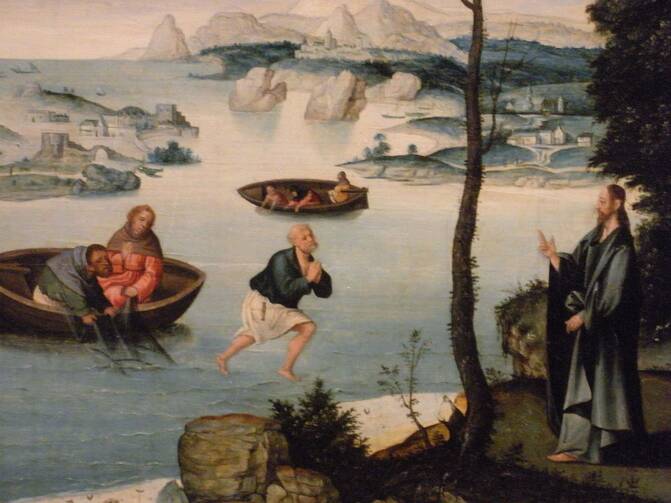A Reflection for the Optional Memorial of Saint John XXIII
He said to him the third time,
“Simon, son of John, do you love me?”
Peter was distressed that he had said to him a third time,
“Do you love me?” and he said to him,
“Lord, you know everything; you know that I love you.”
Jesus said to him, “Feed my sheep” (Jn 21:17).
Today’s Gospel is from the very last chapter of John, and in it, Jesus reveals himself to the disciples for the third and final time after his death (at least in John’s account). Gone are the locked doors and hushed tones of their first post-resurrection encounter with Jesus in the Upper Room. Simon Peter and six other disciples seem to be getting back to “normal” life, the life they left behind when Jesus first said, “Follow me.” They are again at sea fishing, and once again, their nets are turning up empty.
At dawn, a man from shore tells them to cast out the net out over the right side of the boat, and when they do, they “were not able to pull it in because of the number of fish.” When Peter realizes it is Jesus who has called out to them, he hikes up his garments, jumps into the sea and runs to shore. His love for Jesus is so great, he simply cannot wait a minute longer to see his friend again. I’m sure most of us have experienced such a reunion.
Jesus makes clear that wallowing or going to back “normal” are not an option. Three times he replies to Peter: Feed my sheep.
Once on shore, Jesus asks Peter three times: Do you love me? And three times, Peter responds: Yes, of course, you know I love you, Lord. You can hear the distress in Peter’s growing each time Jesus asks the question. This too is a familiar experience: trying to tell someone just how much you love them, and feeling like it isn’t getting through.
But, of course, Peter is right: Jesus does know that Peter loves him. He is not asking these questions to test Peter. Rather, he is giving him a great gift: the opportunity to reverse the three times he denied Christ before the crucifixion. Perhaps Jesus realized there was still some guilt and shame in Peter’s heart over these denials, leading him to doubt his ability to carry out Christ’s mission on earth.
But Jesus makes clear that wallowing or going to back “normal” are not an option. Three times he replies to Peter: Feed my sheep.
As someone who did not grow up with a very touchy-feely faith, I find this scene challenging. Yes, I believe in Jesus, but do I love him? Love him enough to drop everything, jump into the sea and leave normal behind? Is there something in my life causing me shame and preventing me from leading the life God has envisioned for me?
I think it’s a helpful prayer: Ask yourself, however many times you need: Do I love the Lord? And listen for Jesus’ response. He may not tell you to take care of his entire flock like he asked Peter. But surely there is a single lost sheep somewhere in your life that Jesus is asking you to tend to today.








